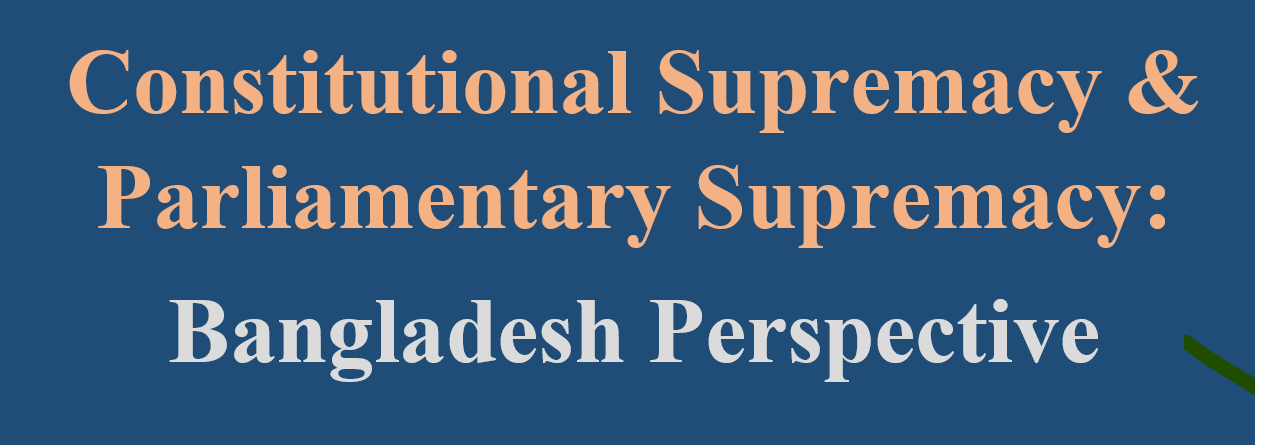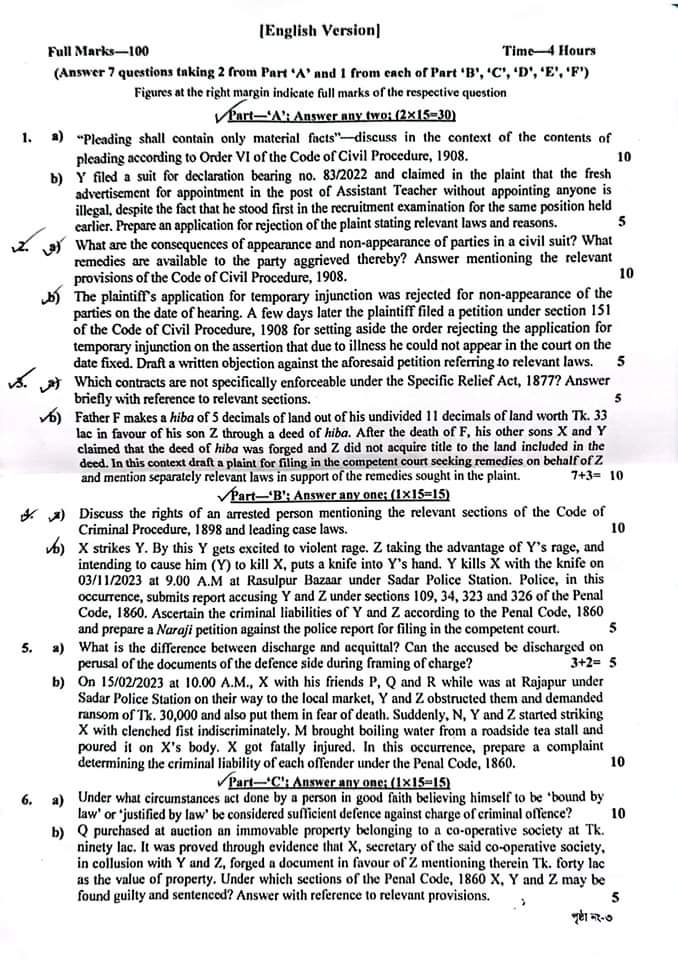Constitutional Supremacy and Parliamentary Supremacy: The Constitution of Bangladesh and UK in Aspect
“In questions of power, let no more be heard of confidence in man, but bind him down from mischief by the chains of the constitution”…Thomas Jefferson (Former President United States of America)
Constitution Supremacy:
The constitutional supremacy means that the constitution is
supreme over the parliament on the contrary to parliamentary supremacy which
requires that parliament will remain supreme over the constitution. In
constitutional supremacy the parliament can exercise its powers and carry out
its functions being only within the bounds of the constitution. Constitutional
supremacy is possible only where the constitution is written and rigid whereas
legislative or parliamentary supremacy or is possible only where the constitution
is unwritten and flexible. Professor Hood Philips says that,
“To say that a Constitution is supreme is to describe its relation to the legislature’s power to alterthe Constitution is either limited or non-existent.”
Features of Constitutional Supremacy:
1. The Constitution is written.
2. The Constitution must be rigid.
3. There must be, in constitution, either express or implied declaration that this Constitution shell be the supreme law and any other law inconsistent with this Constitution shell be void.
4. The parliament is created by the Constitution itself and it exercises its legislative power being within the bounds of the constitutional limitations.
5. There is distinction between constitutional law and ordinary law.
Constitutional Supremacy and Bangladesh Constitution:
The constitution of Bangladesh is supreme over the parliament for the following reasons:
1. The constitution of Bangladesh is a written Constitution.
2. It is a rigid constitution because in ordinary law making process the constitution cannot be amended and article 142 requires the votes of two third majorities of the members of parliament to amend the provisions of the constitution. Basic structure cannot be changed even by the amendment (art. 7B). The idea of basic structure is established by the 15th amendment which is backed by the 8th amendment case (Anwar Hossain Chowdhury vs Bangldesh 1989, 18 CLC, AD)
3. The constitution of Bangladesh declares itself as the supreme law of the Republic and any law inconsistent with the constitution shall be void. As article 7(2) (Supremacy of the Constitution) states: “This Constitution is, as the solemn expression of the will of the people, the supreme law of the Republic, and if any other law is inconsistent with this Constitution that other law shall, to the extent of the inconsistency, be void.” Article 26 also confirms that any law made or to be made inconsistent with part III of the constitution shall be void. The preamble to the constitution also requires maintaining its supremacy.
1. The parliament can legislate on any subject matter without any restriction.
2. Nobody can call in question a law made by parliament.
3. The parliament is not bound by its predecessor or successor.
Parliamentary Supremacy and the UK Constitution:
In the United Kingdom parliamentary Supremacy is prevalent and the fact is justified for the following reasons-
1. The Constitution of the UK is an unwritten constitution.
2. It is flexible one.
3. The parliament of the UK can legislate on any subject matter without any constitutional binding.
4. No one can question the validity of a newly made law. For example, the Supreme Court cannot check the validity of the law by judicial review like ours.
5. New law whatever contains prevails over everything






